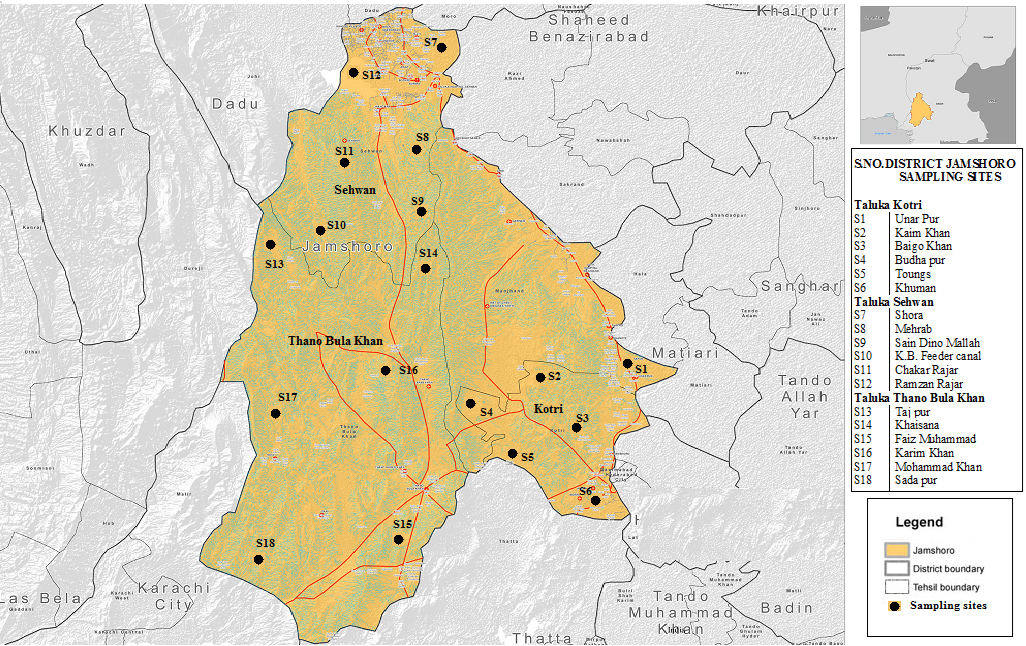Contact: +91-9711224068

FAUNA
- Printed Journal
- Indexed Journal
- Refereed Journal
- Peer Reviewed Journal
Impact Factor: RJIF 5.53
e-ISSN : 2347-2677, p-ISSN : 2394-0522

International Journal of Fauna and Biological Studies
2014, Vol. 1 Issue 6, Part B
Analysis of non-metallic contaminants from amphibian environment in Sindh, Pakistan
Author(s):
Kalsoom Shaikh, Gulam Serwar Gachal, Saima Qayoom Memon, Naveed Ahmed Sodho, Mohammad Yusuf Shaikh, Ayaz Hussain Qadri
Abstract:
Water pollution is a major threat that causes amphibians to decline rapidly. Therefore present study was carried out in three Talukas of District Jamshoro to investigate pollution rate in amphibian ambient through analysis of nonmetallic contaminants i.e. Sulphate (SO4), Phosphate (PO4), Nitrite (NO2) and Nitrate (NO3) from 16 inhabitations during 2011. The ultraviolet-visible spectroscopy revealed whole study area containing high level of SO4 (432.5±149.4), PO4 (400.5±136.7), NO2 (3.0±2.7) and NO3 (6.0±3.5) making environment chemically contaminated that may lead amphibians to mortality. Seasonal fluctuations exhibited extreme concentration of all the studied parameters from May to August which may create environment more difficult for the normal development of eggs and larvae as breeding and hatching takes place during this time. This destructed environment requires urgent management for the conservation of amphibian fauna in District Jamshoro.

Fig. 1: Map of District Jamshoro with indication of study sites
Pages: 54-58 | 2188 Views 343 Downloads

How to cite this article:
Kalsoom Shaikh, Gulam Serwar Gachal, Saima Qayoom Memon, Naveed Ahmed Sodho, Mohammad Yusuf Shaikh, Ayaz Hussain Qadri. Analysis of non-metallic contaminants from amphibian environment in Sindh, Pakistan. Int. J. Fauna Biol. Stud. 2014;1(6):54-58.
Important Publications Links
Related Journal Subscription
Allied Journals
Copyright © 2013 - 2024. All Rights Reserved. International Journal of Fauna and Biological Studies




